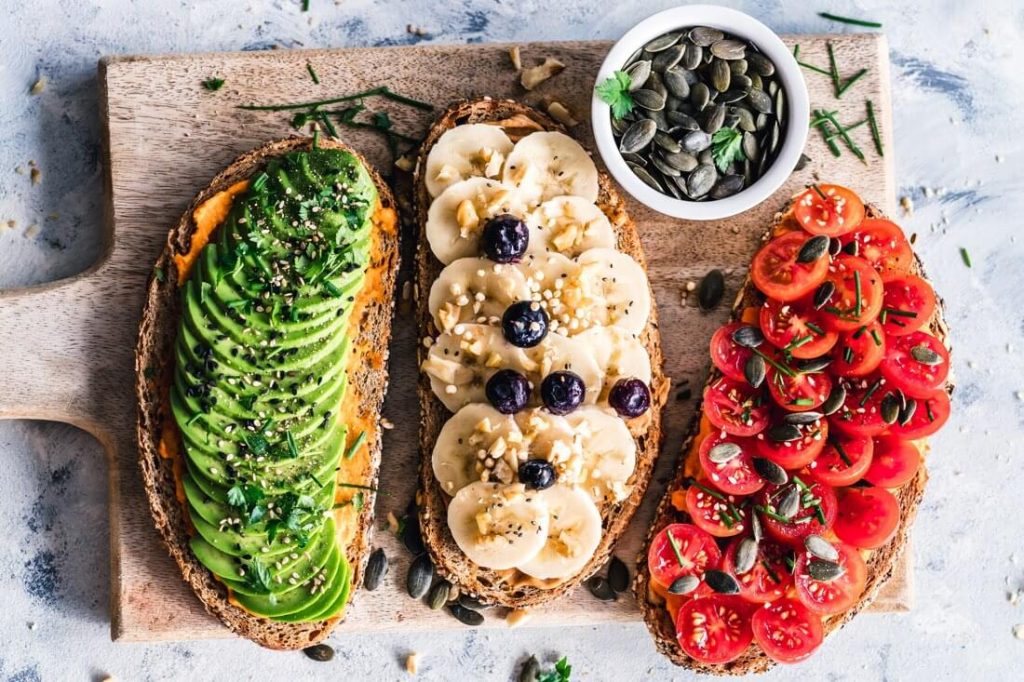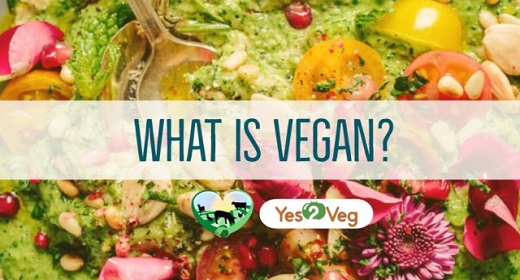The first thing to understand is that veganism is neither a diet nor a religion…
It seems a superficial thing but many people create a lot of confusion. For lack of desire to inform themselves or for not accepting diversity the web is misleading.
For a vegan person, it is not a question of being perfect, or of being superior to others. It is a question of thinking about how actions affect the world. The goal is to find a valid alternative for common life situations so that nothing and no one loses out.
In short, it’s a lifestyle.
Vegan Lifestyle
A vegan lifestyle includes food choices, clothing options, cosmetics, and home products. In short, environmental protection is a pillar.
Vegans make always sustainable choices that respect animals, men, and the planet.
Ethics
The statement “all living beings have the right to life and freedom” for a vegan is a creed.
This is why they always prefer cotton sweaters to those in wool.
They will never use products of animal origin or those tested on animals before entering the market.
A vegan will choose not to visit or protect places that use animals for fun (such as the circus).
They prove their opposition to the system and to people who abuse animals by protesting and raising awareness.
Environment
Household products must avoid the use of harmful chemicals such as bleach and ammonia. Furthermore, child labor is not contemplated.
The products must be based on vinegar and citrus fruits. In case of need of a particular product, this must belong to the family of “green” products.
The raising of animals to meet human needs has a significant impact on the environment. Farms produce greenhouse gas emissions, loss of biodiversity and pollution of watercourses.
A vegan aims to solve this type of problem as well.
Socio-Economic
The cost of the diets that animals must follow and the cost of the land are usually very high. With plant production and maintenance is possible to achieve the same nutritional results.
A vegan choice would provide a cheaper alternative to third world countries where poverty is growing.
Medicine
In most countries, pharmaceutical companies test medicines on animals to verify the lack of harmful effects on humans.
Vegan thinking does not require to avoid medications prescribed by the doctor. But tries to make people aware of the choice of alternative non-animal medicines, always by asking the doctor.
Vegans prefer to donate to widespread charitable organizations that seek alternative testing methods.
When Did Veganism Start – A Brief History
First November 1944, is the precise date of birth of the vegan movement. It was Leicester Donald Watson, a professor of English, who decided to abandon the Vegetarian Society. He no longer shared the position of his members towards animals.
Watson believed animals to be sentient, capable of feeling like human beings and not being inferior to them.
From his choice, the Vegan Society kicks off which repudiates any form of animal cruelty. The current of thought establishes the prohibition of eating meat, milk and their derivatives.
Nowadays this philosophy of life is celebrated all over the world on November 1st of each year ( world veganism day).
CURIOSITY: the name Vegan is the contraction of the term “Vegetarian” without central letters.
Vegan Food

Vegan food does not contain anything that comes from an animal. It must be produced with a minimal negative impact on the environment.
Sometimes even a tiny animal quantity is present on the most unthinkable types of food. The use of unclear alphanumeric abbreviations adds further difficulty. For this reason, nowadays vegans are information-label eaters. They search for milk, honey and other products of animal origin.
A vegan must focus on finding nutrients not easy (sometimes almost impossible) to find in a plant-based diet. Proteins, fats, calcium and some vitamins are particularly important for human health. They are found in meat and dairy products so it is not so simple and immediate to find them.
Proteins are taken by beans, tofu, soy products, peanuts or other nuts, lentils, chickpeas, peas, almonds, rice, potatoes …
Fats through oils, nut butter, avocados and seeds, margarine and coconut.
Calcium is found in dark green vegetables like turnip greens, mustard greens, and spinach. It’s also present in fortified plant milks and some types of tofu.
As for vitamins, it is necessary to use some food supplements. B12, vitamin D, and iodine are almost impossible to find in plant-based foods.
Benefits
Many people look to the vegan diet with a bit of fear. They consider it a food style made up of deprivations and renunciations potentially dangerous to health.
In reality, many scientific proofs state exactly the opposite. A varied and balanced vegan diet brings many health benefits.
- Lower Your Blood Sugar Levels. The vegan lifestyle can be helpful in reducing the risk of developing type II diabetes. In facts, chocolate, candies, and other refined foods are not included in the diet as they somehow involve animal products. People on a vegan diet focus more on whole grains and fiber-rich foods that keep sugar levels low.
- Can Help You To Lose Excess Weight. By nature, vegan ingredients tend to reduce caloric intake. This makes them effective if we need to lose weight and avoid focusing on cutting calories.
- Promotes longevity. In the diet, there are many foods with antioxidant power that fight aging. Think of kiwi, carrots, pomegranate, red fruits and tomatoes.
Veganism In Sport
In recent years more and more sportspeople choose to exclude meat and animal products from their diet. They maintaining excellent results or even improving old ones.
As a demonstration, you can search how many vegan athletes were present in the last Olympics.
For those who practice physical activity, it is important to have a diet that guarantees energy. We all know that mineral salts and vitamins that will be lost during physical exertion.
The vegan nutrition is indicated for the body as it is rich in cereals, fresh and dried fruit, vegetables and legumes. It does not have the disadvantage of introducing animal fats, dangerous to health.
How To Go Vegan
Most omnivores think that becoming a vegan is impossible.
In reality, with a little positive attitude and a bit of will, it is possible to discover a new world that is healthier and more ethically correct.
But, there are some advices that we believe are useful for not suffering the consequences of a lifestyle change.
Schedule
You cannot become vegan overnight, so make sure you do your homework well.
A vegan diet is healthy only if it is well balanced and properly programmed. The foods you are about to eliminate are rich in very important substances (calcium, proteins, vitamins …) and a mixed salad will not be enough to replace them all.
Do the necessary research to find out what foods to include in the diet and what supplements to consider. The web is now full of information.
Keep In Touch With Your Doctor
Go to your doctor and make sure you are in good physical shape. Tell him about the decision to become a vegan and ask him if there are things to keep in mind based on your state of health.
Ask how to maintain a balanced diet and keep yourself healthy by following your new eating habits
Do Not Give Up
Becoming a vegan is a big change, so don’t take it lightly as a passing fad.
A vegan diet is appropriate for any lifestyle (if done correctly). Don’t let yourself be influenced by people who don’t think like you or who look at you strangely at the restaurant.
You have science on your side.
Keep Trying New Things
Leave the tastes known and always go to the discovery of new ones. Experiment with new kitchens. There are millions of vegan recipes out there and whatever your favorite dish, you’ll find a nice substitute.
Keep In Touch With Others
Make new contacts with vegan people or find a partner to face this new adventure. Online nowadays it is full of sites, forums, facebook groups, and vegan communities.
It’s easy to find tips, recipes, and stories of other people who have experienced what you are experiencing.
Reward Yourself
After acquiring new knowledge, learning new recipes and improving your health give yourself a present. Something you want like new clothes, it will help you stay constant over time.
Share With Others
When you are familiar with preparing new recipes, prepare a good meal for your family or friends. Teach them how to prepare a tasty and genuine dish. There is nothing more satisfying than sharing. But remember not to judge and respect the opinions of others because not everyone will agree.
Conclusion
Every small step counts. Reducing the consumption of products derived from animals is undoubtedly a more ethical and respectful way of living.
Becoming a vegan is not necessarily difficult if you have the right reasons but remember to take your time and be patient.
Learn from the mistakes you make and when you feel tired don’t think about the road you are missing but think about the one you have traveled.

















































